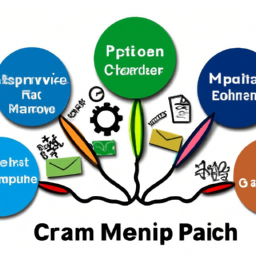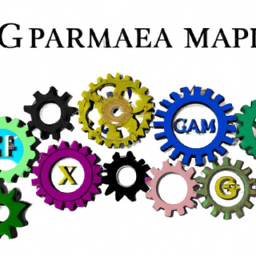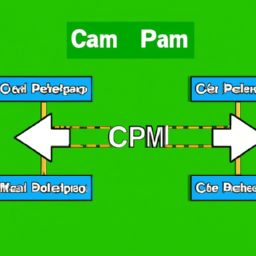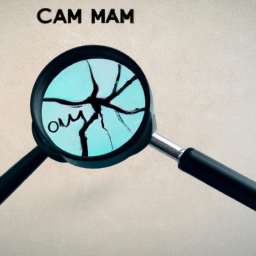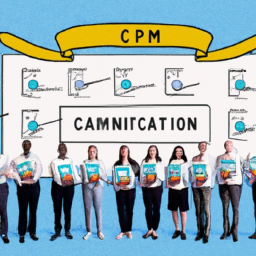Are you considering a project management certification? Confused about which one to choose? Let us guide you through the comparison of the CAPM exam with other project management certifications in this comprehensive analysis.
Discover the key differences in exam structure and format, eligibility requirements, scope and coverage, as well as the career benefits and opportunities offered by each certification.
By the end, you’ll have a clear understanding of which certification best suits your professional goals.
Key Takeaways
- CAPM exam is designed for individuals with limited project management experience, making it a great entry point for those looking to start a career in project management.
- CAPM certification is relatively more affordable compared to other project management certifications, making it an attractive option for individuals on a budget.
- CAPM exam tests understanding of project management principles, processes, and terminology, with a focus on fundamental knowledge and skills required for effective project management.
- Other certifications may be more suitable for experienced professionals and may have a broader scope, covering additional areas like leadership, strategic planning, and stakeholder management.
Key Differences Between CAPM and Other Project Management Certifications
The CAPM certification differs from other project management certifications in several key ways. One notable difference is the exam difficulty. While other certifications may require a high level of experience and expertise, the CAPM exam is designed for individuals with limited project management experience. This makes it a great entry point for those looking to start a career in project management.
Another difference is the cost comparison. Compared to other project management certifications, the CAPM certification is relatively more affordable. The cost of the exam and study materials is lower, which makes it an attractive option for individuals on a budget.
Transitioning into the next section, it is important to also consider the exam structure and format of the CAPM certification in comparison to other project management certifications.
Exam Structure and Format: CAPM Vs. Other Project Management Certifications
When preparing for the CAPM exam, you’ll notice a difference in the structure and format compared to other project management certifications. The exam content is designed to test your understanding of project management principles, processes, and terminology.
It covers topics such as project integration, scope, time, cost, quality, human resources, communications, risk, and procurement management. The exam consists of 150 multiple-choice questions, and you have three hours to complete it.
To pass the CAPM exam, you need to achieve a minimum score of 61%. This passing score is consistent across all project management certifications. However, it’s important to note that the CAPM exam focuses more on the fundamentals of project management, making it a great starting point for those new to the field.
Now, let’s explore the eligibility requirements for the CAPM exam compared to other project management certifications.
Eligibility Requirements: CAPM Exam Vs. Other Project Management Certifications
To determine your eligibility for the CAPM exam or other project management certifications, you should review the specific requirements and compare them. Each certification program has its own set of prerequisites that must be met before you can apply.
Here are some key points to consider:
-
Education: The CAPM exam requires a secondary degree (high school diploma or equivalent) and 1,500 hours of project experience. Other certifications may have different education requirements, such as a bachelor’s degree or higher.
-
Experience: In addition to education, project management experience is crucial. The CAPM exam requires either 1,500 hours of project experience or 23 hours of project management education. Other certifications may have different experience requirements.
-
Training: Many certifications require completion of specific training courses or workshops. The CAPM exam, for example, requires 23 hours of project management education.
-
Exam fees: Each certification program has its own fee structure. Make sure to consider the cost of the exam and any additional fees associated with application or renewal.
Scope and Coverage: CAPM Exam Vs. Other Project Management Certifications
Scope and coverage vary for the CAPM exam and other project management certifications, so it’s important to carefully compare the requirements and content of each program.
The CAPM exam primarily focuses on the fundamental knowledge and skills required for effective project management. It covers areas such as project integration, scope, time, cost, quality, human resources, communications, risk, and procurement management.
On the other hand, other project management certifications may have a broader scope, covering additional areas like leadership, strategic planning, and stakeholder management.
When it comes to exam content, the CAPM exam is based on the Project Management Body of Knowledge (PMBOK) guide, which is a comprehensive resource for project management practices.
To prepare for the exam, it is recommended to use study materials specifically designed for the CAPM exam, such as practice exams, study guides, and online courses that align with the exam content.
Career Benefits and Opportunities: CAPM Exam Vs. Other Project Management Certifications
The career benefits and opportunities for individuals who hold the CAPM certification are different from those who hold other project management certifications. Here are four reasons why:
-
Job Prospects: Holding the CAPM certification opens up a wide range of job prospects in the field of project management. It demonstrates your commitment to the profession and enhances your credibility with employers.
-
Industry Recognition: The CAPM certification is globally recognized and respected by industry professionals. It provides validation of your knowledge and skills in project management, giving you a competitive edge in the job market.
-
Career Advancement: By obtaining the CAPM certification, you increase your chances of career advancement within the project management field. It shows your dedication to professional growth and development, making you a valuable asset to your organization.
-
Networking Opportunities: Holding the CAPM certification allows you to connect with a vast network of project management professionals. This network can provide valuable insights, mentorship, and potential job opportunities, further enhancing your career prospects.
Overall, the CAPM certification offers unique career benefits and opportunities that differentiate it from other project management certifications. It not only enhances your job prospects but also provides industry recognition, career advancement, and networking opportunities.
Frequently Asked Questions
Is the CAPM Exam Recognized Internationally?
Yes, the CAPM exam is recognized internationally and widely accepted. It is a globally recognized certification offered by the Project Management Institute (PMI).
The CAPM certification demonstrates your knowledge and understanding of project management principles and practices, making you a valuable asset in the project management field.
Many organizations and industries across the globe recognize the CAPM certification and consider it as a valuable credential for project management professionals.
How Long Does It Typically Take to Prepare for the CAPM Exam Compared to Other Project Management Certifications?
Preparing for the CAPM exam compared to other project management certifications requires time and effort. To succeed on the CAPM exam, you should follow study tips that emphasize understanding key concepts and practicing with sample questions.
When comparing study materials, consider the depth of content coverage and the level of detail provided. Take into account your learning style and preferences to choose the most suitable study materials for your preparation.
Are There Any Prerequisites or Prior Work Experience Required for Other Project Management Certifications?
Before pursuing other project management certifications, it’s important to consider the prerequisites and work experience required. Different certifications may have different requirements, so it’s crucial to research and understand them thoroughly.
Some certifications may require a certain number of years of project management experience, while others may have educational prerequisites. Additionally, some certifications may offer alternative pathways for individuals without extensive work experience.
It’s essential to evaluate your own qualifications and choose a certification that aligns with your background and career goals.
Can I Apply for Multiple Project Management Certifications at the Same Time?
Yes, you can apply for multiple project management certifications at the same time.
Having multiple certifications can provide several benefits. For example, it can expand your knowledge and skills in different areas of project management. Additionally, it can increase your marketability and job prospects. It also demonstrates your commitment to professional development.
However, it is important to carefully consider the time and resources required for each certification. You need to ensure that you can effectively manage the workload and maintain the necessary level of dedication for each certification.
Do Other Project Management Certifications Have a Continuing Education Requirement Like the CAPM Certification Does?
When comparing project management certifications, it’s important to consider the continuing education requirements.
While the CAPM certification has a continuing education requirement, it’s necessary to research and compare the requirements of other certifications as well.
This allows for a comprehensive comparison of the certifications and their importance in maintaining professional knowledge and skills.
Conclusion
In conclusion, after analyzing the key differences, exam structure and format, eligibility requirements, scope and coverage, as well as career benefits and opportunities, it is evident that the CAPM exam stands out among other project management certifications.
The CAPM exam offers a comprehensive and focused approach, providing individuals with a strong foundation in project management. It opens doors to various career paths and enhances professional growth.
As the saying goes, "The CAPM exam is the key that unlocks the door to success in the project management field."

